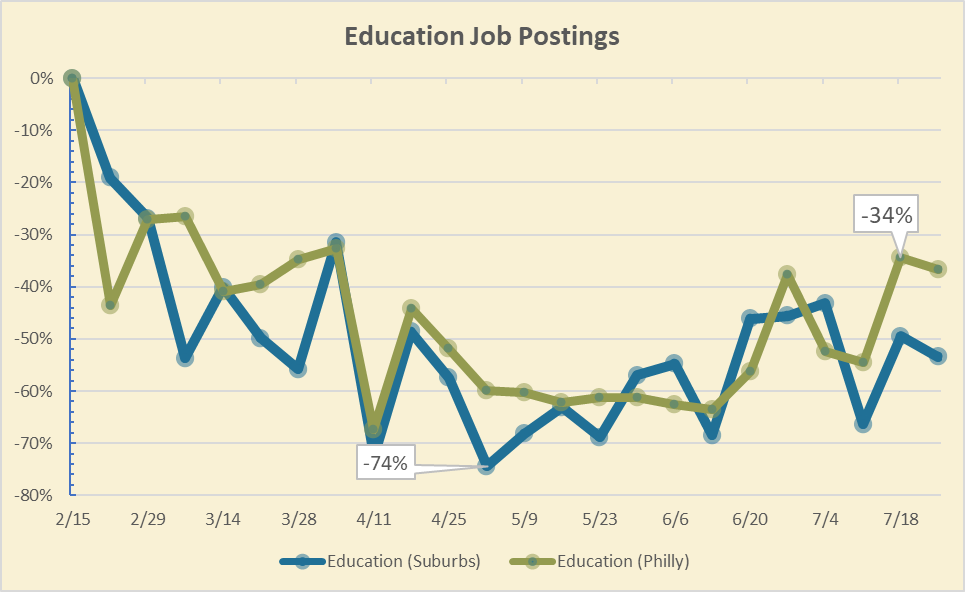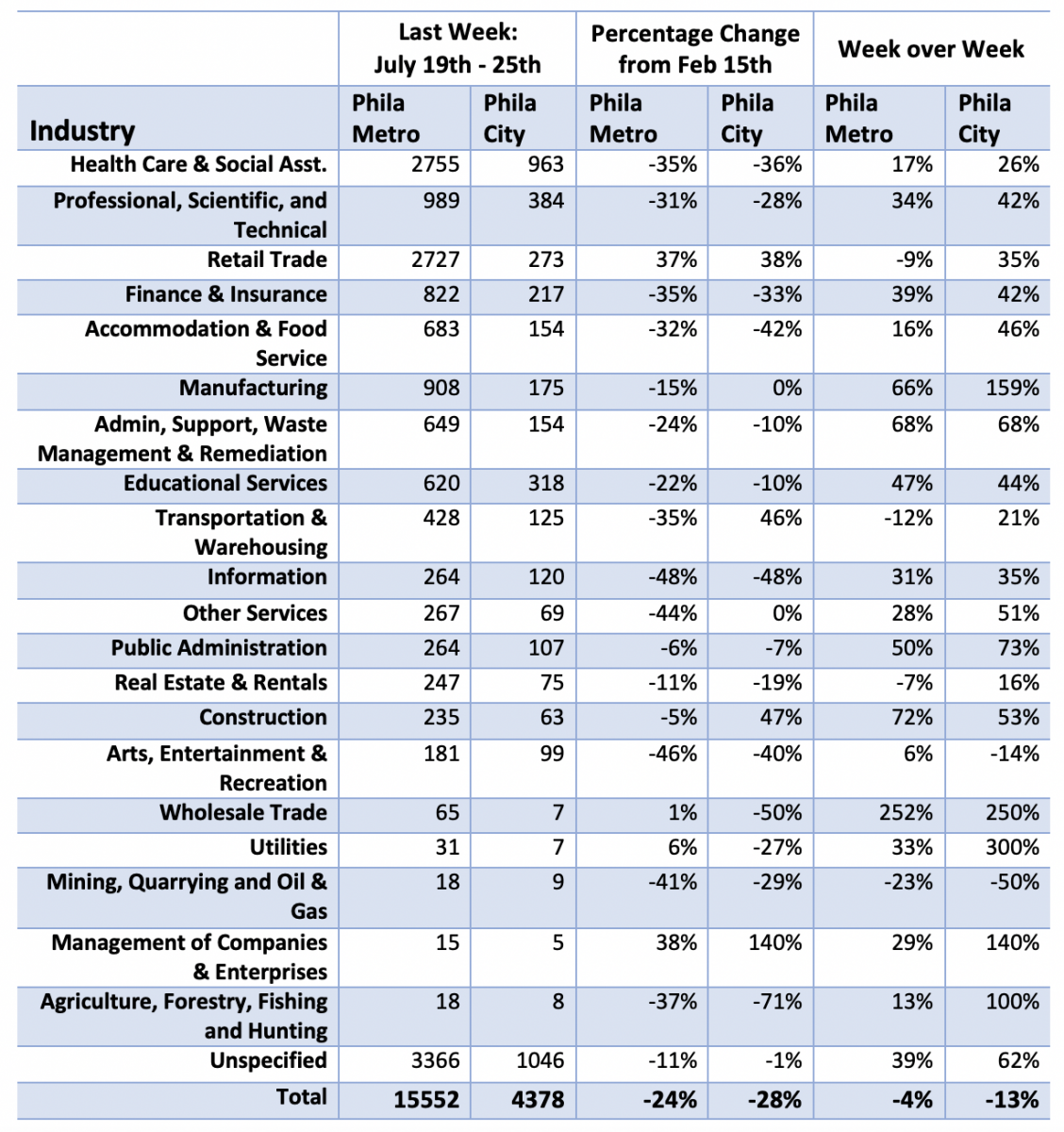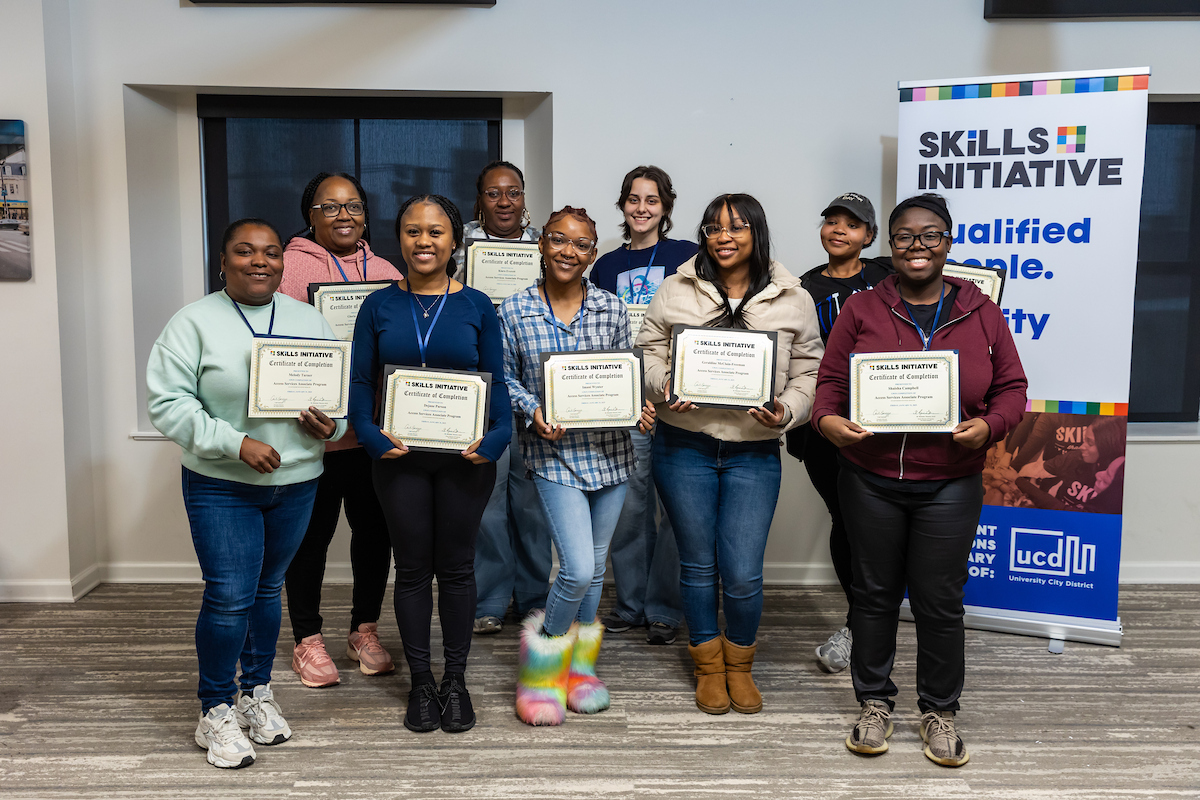Every week, we will be publishing labor market industry (LMI) data and important trends to consider in the development of an equitable economic recovery from the COVID-19 crisis. We are always looking for opportunities to learn, grow, and collaborate. Email wpsi@universitycity.org to learn more.
Normally by the end of July, anyone who has regular contact with children is thinking about back to school. This year, of course, that takes on a whole new meaning. While the debates around reopening continue (as of this writing, the Philadelphia School District has not made a final decision), we wanted to look at the intersection of work and school.
First, let’s explore jobs in the education sector. Unlike the retail, transportation/warehousing or manufacturing industries, the education sector lags far behind the number of postings we would expect at this point in the year. Compared to our baseline week of February 8-15th, postings for the week of July 19-25th are still down by 46% in the Philadelphia Metro Area. In a typical year, August is one of the busiest months of education hiring, but with little instruction happening in person, it is unlikely that we will see a sudden spike in job postings in the coming weeks.

Change in weekly job postings in the education sector, compared to postings in the week of February 15th 2020.
What is also worth noting, is that most job postings in the education sector are coming from colleges and universities, not K-12 or early childhood education. In fact, the top 15 employers posting education jobs since the start of the pandemic are all colleges or universities.
In person education also plays a large role in allowing parents and caretakers to work. As many have discovered this year, working from home while caring for a child is not easy. Until schools can safely reopen, many parents will be unable to take on even temporary employment. Moreover, research suggests that school closures can result in permanent reduction in lifetime earnings for students.
The ripple effects of this extends even further. Childcare costs are an ever-present issue for working parents and guardians, especially for those with lower incomes. High speed internet access is essential for young learners, but is not always available, or affordable. Many of our West Philadelphia Skills Initiative graduates are parents, so our program must reconsider how we can support our alumni and plan for programs in the coming year. “Back to normal” will be virtually impossible until there is a widely administered vaccine. The pandemic’s toll on essential workers and their communities will only increase as children begin school this fall, and lack of access to vital services like childcare and internet will only put further stress on families already struggling.

About the data: Data is sourced from Burning Glass Technologies Labor Insights, unless otherwise noted, covering job postings in the City of Philadelphia and the Philadelphia Metro Statistical Area (MSA), which is comprised of roughly a circle surrounding Trenton, Philadelphia, King of Prussia, Camden, and Wilmington. This data is then compared to a benchmark week of February 9th – 15th, which was the last week before the economic impact of COVID-19 began to be reflected in job posting data.
